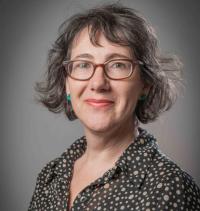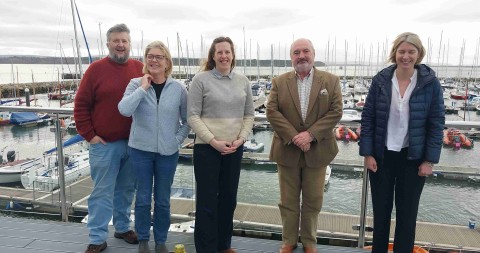Dr. Mary Geary
Senior Lecturer, School of Applied Sciences, University of Brighton
Scholarly biography
I am a geographer concerned with understanding contemporary human-nature relationships, particularly with regards to emergent forms of water governance. I explore processes of global water utility privatisation and financialization, political austerity policies, rapid urbanisation and climate change activism to understand evolving ‘hydro-social’ relationships between humans and their access to, and use of, planetary water.
I work with a wide community of stakeholders who are involved in water governance. This includes farmers, naturalists, artists, planners, walkers, local residents, environmental activists and ecologists.
My teaching and research focuses on:
1. Understanding patterns of environmental citizenship and activism with regards to freshwater resources across the planet, particularly amongst community elders, in support of sustainability
2. Exploring how renaturing cities through the use of blue-green infrastructure can improve the ‘liveability’ of these dense urban spaces, and the ways in which these technologies and interventions can support climate change mitigation and adaptation strategies.
3. Interrogating contemporary human health and wellbeing experiences within wetland environments, to understand the relationship between landscape forms, identity formation and our connectivity with other ‘more than human’ species.
My research has been funded through a variety of UK research councils including NERC and the AHRC, the European Union, the Daphne Jackson Trust, the Landscape Research Group and the Royal Academy of Engineers amongst others.
My most recent research project is WetlandLIFE (www.wetlandlife.org) part of the Valuing Nature Programme. I am a management board member of the Centre for Aquatic environments https://www.brighton.ac.uk/aquatic/index.aspx and a Fellow of the Royal Geographical Society.
Research interests
My research interests lie in seeking to bridge the disjuncture between climate change science, water resources management practice and local articulations and experiences of changing water environments. My work is critically engaged with understanding how developed economies organize and manage their freshwater resources with regards to transitioning towards sustainable futures in the context of climate change. At heart my research explores why climate change narratives are still failing to resonate with most citizens, and are still not embedded within organisational praxis, and seeks to determine what approaches may close these gaps in order to support transitions towards sustainable futures. Inherent to this line of questioning are explorations of emergent forms of citizenship, discourses of governance and the links between landscape, taskscape and community within the late capitalist era. I draw on the work of Karen Bakker, Noel Castree, Eric Swyngedouw, Neil Adger and Tim Ingold to undertake empirical qualitative fieldwork which interrogates the political, cultural and physical intersections which co-create our sense of place, and our intimate, immediate relationship with our water environments. Recent research projects have included 'Rewilding elders: understanding environmental activism during retirement'; 'WetlandLIFE: taking the bite out of wetlands'; 'Towards Hydrocitizenship' and 'Community water governance: understanding place and subjectivity'.

